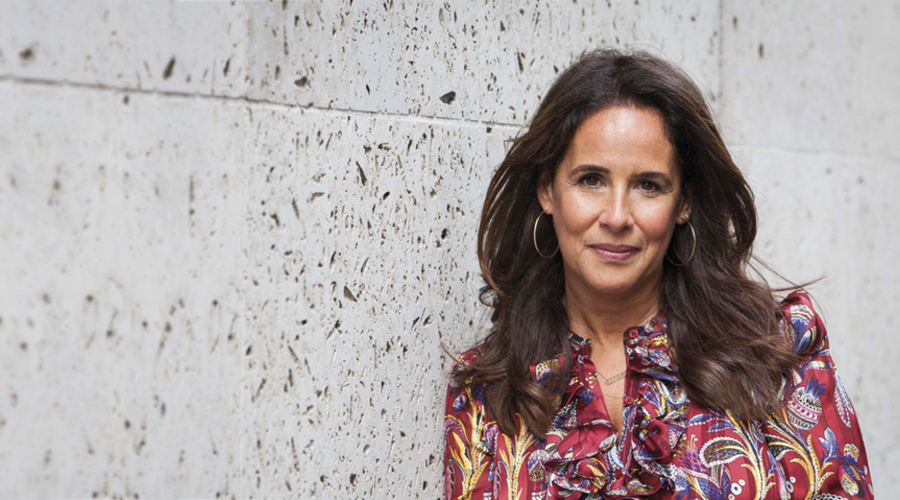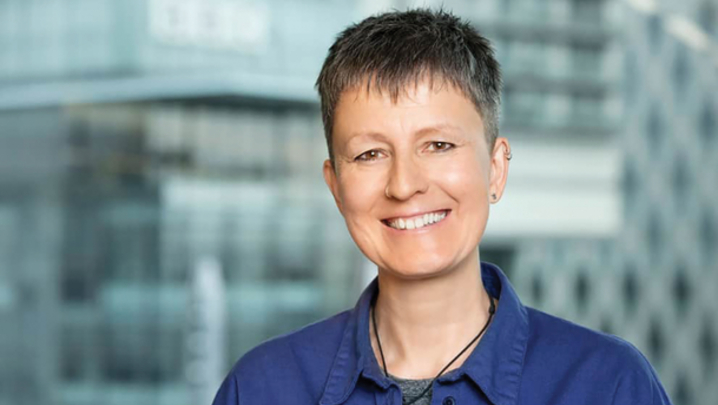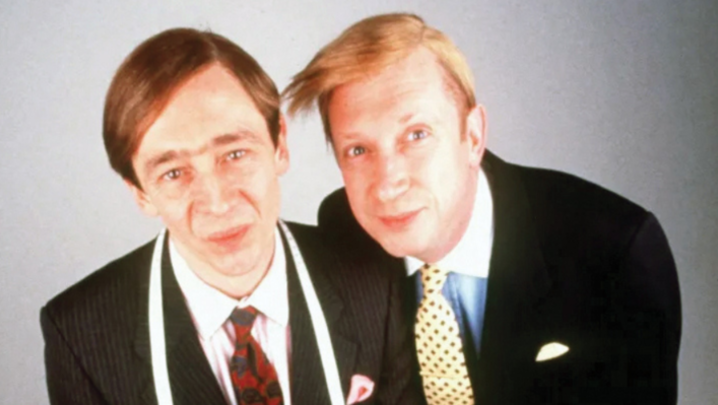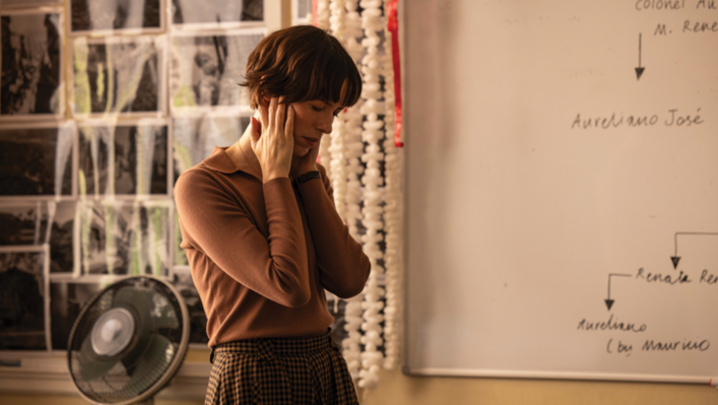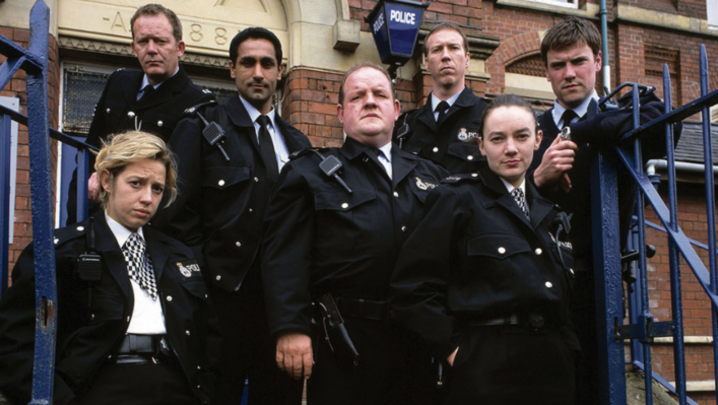Andrew Billen wonders if BBC head of factual Alison Kirkham can fly higher still and compete against the US giants
In television, the death of something is always being predicted. Usually, it’s a genre – the studio sitcom, perhaps, or the one-off drama. On the worst days, it is television itself. Factual television had its own demise foretold – or, at least, hinted at – nearly three years ago, when Danny Cohen, then the BBC’s head of television, warned that it needed to “up its game” because drama was the new comedy. Or was it the new rock ’n’ roll?
Yet, here I am, meeting the BBC’s head of factual, Alison Kirkham, whose shows, Hillsborough, Exodus, Muslims Like Us and Planet Earth II, won each of the major factual categories at Bafta this year. Meanwhile, Damilola, Our Loved Boy, which was a co-production between documentaries and drama, took the Single Drama prize. This autumn, her line-up includes David Attenborough’s already lauded Blue Planet II. And, the week that we talk, headlines are being made by two of her BBC Two 9:00pm contributions: Anne Robinson’s personal inquiry into abortion and Chris Packham’s documentary about his Asperger’s.
“That’s really extraordinary, a beautiful, beautiful, film,” she enthuses. “It’s a good time for factual, I think. You’re seeing a lot of it across all the channel schedules, and that’s really gratifying. You never want to say it’s good, but we’re happy with the year. We’ve had a good time at the Baftas and we’ve just secured a lot of Grierson nominations.”
As for Robinson, Kirkham had read her memoir when she worked with her on Watchdog. She had filed in her head the book’s brief mention of an abortion.
“When you look back over a career, there are people who are sort of defining for you, who become like mentors, and she was one for me, for sure,” says Kirkham. “She confounded all my expectations. I expected her to be an amazing journalist, which she is, but she’s also a really compassionate, warm, supportive woman. She’s much more nuanced than I imagined she would be.” (Incidentally, Kirkham is the easiest to talk to and most open BBC executive I have met since starting these profiles.)
It is not just on the BBC or in this country where factual is prized. OJ: Made in America was made for the US sports network ESPN and was sensational. Netflix’s Making a Murderer was as much talked about in certain circles as House of Cards.
We are drifting towards two things: longer series and bigger one-offs
Is she worried by the competition? “People ask me that. I think it’s a massive compliment. I genuinely remember, five or 10 years ago, people saying that it’s going to be the death of factual. Factual can’t have an impact in this competitive market. And look! Rio Ferdinand [on his bereavement]: 6.5 million people watched a single doc! Diana and I: 6.5 million people watched a single doc! I think Netflix has noticed that you can have an impact with factual.”
But has the BBC made anything long-form as impressive as OJ? “We’ve been talking about it, actually – you know: what’s the British version? I absolutely wouldn’t rule that out. Some stories really do merit that forensic examination.”
Kirkham was appointed last year, after acting up for 12 months when her predecessor, Emma Swain, was sent off to think big strategic thoughts and never came back. It has been two years of change in the department, with the departures of Aaqil Ahmed, Sam Bickley, Clive Edwards and Martin Davidson and the imposition of a new structure. Three chief commissioners now report to her: Tom McDonald (specialist factual and natural history), Clare Sillery (documentaries) and the ex-Channel 4 commissioner David Brindley (popular factual).
“I think it’s an easier, more streamlined department to manage,” she says, but she has her critics, particularly those indies who have not yet found their way round the new configuration. One established documentary-maker described to me the dispiriting process of ideas being dismissed by email without him being let in to pitch.
“People come in all the time,” she protests, noting that the meetings rooms are always full.
A recent briefing at New Broadcasting House for 300 suppliers was, I had been told, a frosty affair. She denies it forcefully, asserting that the department’s showreel was warmly applauded. But why, I ask, had it been necessary to request that questions be texted anonymously.
She explains that questions had been tailing off at these sessions: “I think, if you’re a small supplier, potentially, that room is intimidating, I just wondered whether the ability to submit questions anonymously might encourage more honest and more challenging questions.” She says the result was “a lot of questions”.
Relations with one big indie, Love, have certainly soured. Having lost its Bake Off flagship and recently passed on more helpings of Crème de la Crème, the BBC may be about to be told to buzz off by The Great British Sewing Bee.
“Well, we’ve gone public that we’ve put in a good offer for the next series – an increased offer for The Sewing Bee,” says Kirkham. As she did for Bake Off? “Oh, a significantly increased offer. It was a good offer.”

(Credit: BBC)
On losing Bake Off, which, as formatted factual, was part of her empire, she says: “We put in a very good offer. Resources are finite, we’re funded by a universal licence fee and we’ve got to take responsibility, and we couldn’t go higher than what was already a significant offer. It went to Channel 4 and lots has been written about it. We wish it every success.” It is the only time during our hour together that she sounds like a press release.
We are sitting in the David Attenborough room, but even he can be critical. He recently decried to me the vogue for short runs of documentary series than can reduce, for example, the history of Vienna to a barely comprehensible three by 60-minute sprint.
Kirkham says: “We’ve just commissioned a history series, called Icons, which is the history of the 20th century as told through biography, and that’s eight one-hours.
“I think we are drifting towards two things: longer series and bigger one-offs. We are about to announce Suffragette, which is a one-by-90 that Lucy Worsley is doing to mark the anniversary of suffrage. That will feel like an event in the heart of the BBC schedule.”
Another will be a “landmark” documentary, Grenfell, which will look at Kensington through the eyes of the troubled London borough’s residents. “The difference in life expectancy between north and south Kensington is the same as the difference in life expectancy between North and South Korea,” she points out.
Other new commissions look more doubtful. I just cannot see how a new makeover show presented by Claudia Winkleman (and simply called The Makeover Show) fits with Kirkham’s public promise, above all, to take risks.
What impresses, however, is the range of her department’s output, and Kirkham’s hands-on interest in all of it. She can be as enthusiastic about Nadiya Hussain’s British Food Adventure rating 2.5 million in the once forlorn 8:00pm slot as about the really problematic and Bafta-winning Muslims Like Us.
Eclecticism, however, has run through her life and career. Kirkham may have been brought up in London, the daughter of two business owners, and spent 11 years at the fee-paying North London Collegiate School before heading to Oxford to do PPE, but her childhood was broader than that reads.
She spent a spell in Chicago, where her father worked for American IT companies. After Oxford, she, herself, worked for a year in Washington as a researcher for the legendary US Democrat senator Dianne Feinstein, who became a seminal influence on her. She returned to do a journalism course at City and then took her first job as a broadcast assistant at Radio 4’s Today.
Although her passion for news is still obvious, her next job was on This Morning. “We don’t do it enough in TV any more but, by working there, you learnt live studio, you learnt filming, you leant being in an edit suite, you learnt interviewing, you learnt to do formatted items. I could not have asked for a better-rounded apprenticeship.”
She also surprises me by naming Trevor McDonald as one of her mentors. She was working as his producer on ITV’s Tonight at the time of 9/11.
“We interviewed Colin Powell nine days after 9/11 in DC and then Paul Wolfowitz. We did the UK interview with George Bush nine months after. We interviewed Laura Bush.”
McDonald gave her some advice that she says she has “always held on to and tried to share with the team. We’d done the George Bush interview and fed it back and we went out to celebrate over a drink and he said to me, ‘It won’t always be like this.’ He said: ‘Remember it now and celebrate the achievement now because, when you’re young, you think everything is going to be like this, and it’s not always going to be.’ And it was quite paternal advice to live in the moment. Youth doesn’t always afford you that insight.”
For Tonight, she flew to Montreal two days after the Twin Towers attack and then drove through the night to New York. It was a pivotal moment in modern history but also for her. Before leaving, her editor suggested emailing a former colleague, Gideon Joseph, who was in New York, working on a documentary, to see if he could help with setting up interviews.
A few days later, they met in person. Reader, they married and have two sons, 10 and 8, who are as mad keen on TV as their mother has always been. Her present job is, she says, more suited to her family life, but she had courted the idea of managing a team ever since she witnessed her father doing so while she briefly worked in credit control for his company.
She enjoys nurturing talent, adding a dash of experience to younger colleagues’ passion. Her department is only about 25 strong, but she thinks it is happy. “I love seeing commissioners grow. I love that spirit of camaraderie and team building.”
Yet, she is also clear that, on some projects, she will demand to be in the editing suite and, on others, such as Diana and I, she will be executive producer. And she still directly commissions ceremonial and royal events. “So I keep my little slate.”
Will the Queen’s funeral be hers? “I couldn’t possibly comment on that.”
We discuss how much better documentaries look these days, just how cinematic The Detectives: Murder on the Streets was, for example. Maybe, I say, Cohen was right to say factual needed to up its game. And, maybe, it did?
“Well, maybe, we did,” she concedes. “When I was less experienced in my career, I always used to hear people saying that a genuinely competitive landscape is exhilarating, that you need competition to be strong. And I never really understood that. But, now, I do. It’s hugely motivating and exciting.”
Alison Kirkham: feats and facts
Alison Kirkham, controller of factual commissioning, BBC TV
Born 14 March 1974, brought up in London and Chicago
Father John Kirkham, IT executive
Mother Hilary Kirkham, ran a recruitment agency and then worked in local government
Married to Gideon Joseph, CEO, Transatlantic Entertainment; two sons; lives in Willesden, London
Education North London Collegiate School; Wadham College, Oxford, 2:1 in PPE
1997 Broadcast assistant, Today
1998 Assistant producer, This Morning
2000 Producer/director, Tonight with Trevor McDonald
2004 Producer, I’m a Celebrity… Get Me Out of Here!
2004 Associate editor, Richard and Judy
2006 Acting controller, BBC daytime
2007 Commissioning executive, BBC formats and features
2010 Head of commissioning, BBC formats and features and events
2015 Acting controller, BBC factual
2016 Controller of factual commissioning, BBC
Hits Eat Well for Less; Back in Time for Dinner; Britain’s Spending Secrets with Anne Robinson; Exodus; Muslims Like Us
Miss The Big Family Cooking Showdown
Watching now ‘A lot of factual – ours and other channels’: Strictly, The X Factor, Ray Donovan, The Vietnam War, Match of the Day
Not watching ‘I tried Tin Star, as I love Tim Roth, but gave up’
Reading What Happened by Hillary Clinton
Mentors Dianne Feinstein, Anne Robinson, Trevor McDonald

